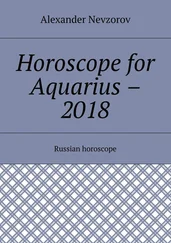In April I received the expected call from my "collaborator." It was an unexpected call from an old friend. The doorbell of my pension in Elizabeth Strasse rang, and the maid ushered in a colleague whom I had not seen since the days of the Spanish War. I was astounded that he had found me, as I had, on instructions, severed all connections with the brigade and even my own family did not know that I was in Germany. I soon discovered that this was no social call but that he was in fact my new fellow worker in Sonia's network in Germany.
Bill Philips (or, to give him his Soviet cover name, Jack) had been recruited in exactly the same way as I. In fact I had been indirectly responsible for his recruitment, as I had given King Street his name as a likely candidate to succeed me in the job of courier to Spain. He had worked with me in brigade transport in Spain and, quite apart from our jobs being side by side, we had been drawn together as he was not a Party member either. (It is not without significance that, as far as Sonia was concerned, the network that she set up consisted of almost entirely non-Party members- though their anti- Fascist records were impressive. This was, after all, mere common sense on the part of Moscow. A Party member would be ipso facto suspect. It would take quite a lot of foreign police digging to discover my past - open as it was.)
Bill had already set himself up in Frankfurt, having received instructions as vague and unsatisfactory as mine. He had been told specifically only that he was to keep an eye on the I. G. Farben factory and to help me in the "Hitler scheme."
It was news to me that this was in fact a scheme. At our last meeting Sonia had told me to keep a general eye on Hitler's movements, but in the subsequent two months the idea had burgeoned in the eyes of the Kremlin into a full-blown scheme for assassination with Bill and me apparently cast for the principal roles. We were neither of us very willing actors as neither of us really fancied a martyr's crown- especially since on the face of it the scheme appeared suicidal and doomed to failure. We did feel, however, that in fairness to our employers, who, after all, had been paying us for some months with little or no return for their money, it behoved us to look into the matter- and the result was not unpromising.
It was not necessary to reconnoitre the field because I knew the restaurant extremely well. Hitler always lunched in a private room which was separated only by a thin wooden partition from the corridor leading from the restaurant to the lavatories. It was along this partition that the coats of the customers were hung. As far as we could gather there was no special surveillance of the place and no extra precautions were put into force when the Fuehrer honoured it with his presence. What could be easier, we argued, than to put a time bomb in an attaché case along with our coats and, having had an early lunch, abandon the lot in the hope that the bomb would blow Hitler and his entourage, snugly lunching behind the deal boarding, into eternity. Looking back on the scheme now, it appears to me to have been well-nigh foolproof. It also bears a startling resemblance to the July 1944 attempt by Stauffenberg. In his case wooden partitions caused the scheme to fail: the blast escaped and Hitler survived. We were too innocent then to know of the niceties of explosives, but as the other three walls were solid Bavarian stone it seems likely that we might have been successful. But the whole affair never got further than the planning stage. It is easy enough as an officer cadet to plan a Tactical Exercise without Troops. It is equally easy as a cadet spy to plan a Sabotage Exercise without Explosives. In both cases the individual has the power and not the ultimate responsibility. The officer cadet will blithely throw away a company in a dashing assault on an impregnable position, knowing that the worst that can befall him is a low mark. Similarly we planned the operation knowing that the worst that could befall us would be a sour look from Sonia.
Determined, however, to earn our keep, on paper if not in practice, we went even further and planned an alternative scheme which involved assassination in its more traditional character- by revolver rather than T.N.T. It was Hitler's habit to proceed down the restaurant en route to his private room, acknowledging the plaudits of the lunchers who, not unnaturally, rose to their feet on the entrance of the head of the state. One day Bill stationed himself at the table next to the gangway, and as Hitler approached put his hand rapidly and furtively into his pocket- and drew out a cigarette case. I on the other side of the room watched the reactions of Hitler's entourage and the rest of the lunchers among whom one imagined there must have been a fair sprinkling of trigger-happy Gestapo agents. Nothing whatever happened. No reaction was visible- though to my heated imagination no action could have looked more suspicious. Looking back on this, it all seems incredibly jejune- even though Bill's act required a considerable amount of personal courage as, if the guards had been alert, it would have been small comfort to him to have been beaten to the draw- of a cigarette.
With such innocent sports Bill and I whiled away our ' time in Munich together. He had little more to do in Frankfurt than I had in Munich, and preferred to come down and see me so that we could do nothing together.
In May I met Sonia again at Vevey at the end of the three months' period. She urged me to go on with further plans for the Hitler assassination plot. I agreed to look into the matter in greater detail, which I had no intention whatsoever of doing. There was no more planning to be done- all that was necessary was an explosive suitcase or a potential suicide- and Sonia's network could provide neither. I returned to a Germany where such plots were still only in the backs of the minds of German generals.
There was one more sabotage exercise during our German period. This scheme was born of Bill's enthusiasm for his job. He had discovered that there was a Zeppelin in a hangar close to Frankfurt and conceived the brilliant notion of burning it up. I never saw it, and Bill's description was confused, but I have always imagined that it was the Graf Zeppelin, which was frequently paraded round Germany on show. Bill said that it would be perfectly easy to put a time bomb with a slow fuse in a cigarette packet under one of the seats and let it and the hydrogen in the envelope do the rest. The next step was of course the manufacture of an incendiary mixture. Sonia had given me instructions in the compounding of an efficient incendiary mixture from chemicals which could be bought easily and openly. After this lapse of time I am vague as to the formula but remember that sugar, aluminium powder, and charcoal were among the ingredients. A moderately accurate time fuse was not difficult to make with two chemicals separated by a division which would be dissolved by acid action in a specified length of time depending on the thickness of the partition. Bill and I conducted simple but satisfactory experiments in a secluded meadow near Munich. However, I was not at all convinced that it would set fire to the leather cushion of the seat in the Zeppelin under which it would have to be concealed. I was also under the impression; I believe now wrongly, that they used helium rather than hydrogen filling for the envelope with the result that we would have to rely on the combustion of the interior fittings alone with no assistance from the gas in the envelope. Before I could go further with my experiments I was summoned to Vevey to an emergency meeting with Sonia. This was in August and coincided with Bill's routine visit at the end of his three months' period.
Sonia was extremely excited over the scheme- even more so than she had been over the Hitler plot. We discussed the whole thing at length, walking up and down the front at Vevey. Sonia was convinced that it would work. I was equally certain that the whole thing would be a flop from the start and that even if the bomb could be planted unobserved the incendiary mixture would ignite nothing save itself.
Читать дальше












